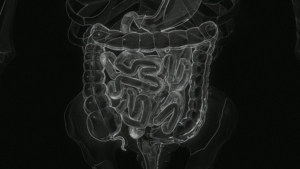
EU approves Roche’s atezolizumab for bladder cancer
Though not reaching the overall surival endpoint in Phase III, the European Commission has granted label extension for Roche's checkpoint blocker Tecentriq in two types of metastatic bladder cancer.
Following a recommendation, the CHMP of the European Medicines Agency (EMA) gave in July, the European Commission approved the new treatment option for people with metastatic urothelial carcinoma (mUC) who have been previously treated with a platinum-based chemotherapy and for people who are ineligible to receive cisplatin chemotherapy. In the US, Roche received an FDA accelerated approval based on Imvigor210 Phase II results in April. Data from the Imgvigor211 study, published in May, however, did not confirm an overall survival benefit because of unexpected high survival in the chemotherapy arm and did not support full approval in the US. In May, Merck KGaA and Pfizer received FDA accelerated approval for their PD-L1 blocker Bavencio (avelumab) for the mUC indication.
In a press release, the CHMP, however, suggested that the benefit of Tecentriq is its ability to show durable responses in first-line cisplatin-ineligible and second-line urothelial carcinoma not taking the OS data from Phase III IMvigor211 into account.
"The approval is based on results from the randomised Phase III IMvigor211 study and cohorts 1 and 2 from the single-arm Phase II IMvigor210 (Phase II) study, Roche said in a press release. The company added that "the Phase III IMvigor211 study did not meet its primary endpoint of OS, compared with chemotherapy. However, the study showed that the median duration of response (mDOR), a secondary endpoint, for those receiving Tecentriq was 21.7 months (95% CI: 13.0, 21.7) in the overall study population, compared with 7.4 months (95% CI: 6.1, 10.3) for those receiving chemotherapy. At the time of data cutoff, the majority (63%) of people who responded to treatment with Tecentriq continued to respond, compared with 21% of people treated with chemotherapy. In contrast to IMvigor 211 results, those from cohort 1 of the Phase II IMvigor210 study showed that the PD-L1 checkpoint inhibitor achieved a median OS of 15.9 months in the overall study population. At the time of approval, the EMA had not yet published the EPAR for Tecentriq as treatment for urothelial carcinoma, which will outline why the CHMP saw a benefit albeit lack of significant longer OS.
The Commission have also the green light for atezolizumab in advanced lung cancer, based on a documented overall survival benefit in the Phase II OAK study



 Unsplash+
Unsplash+